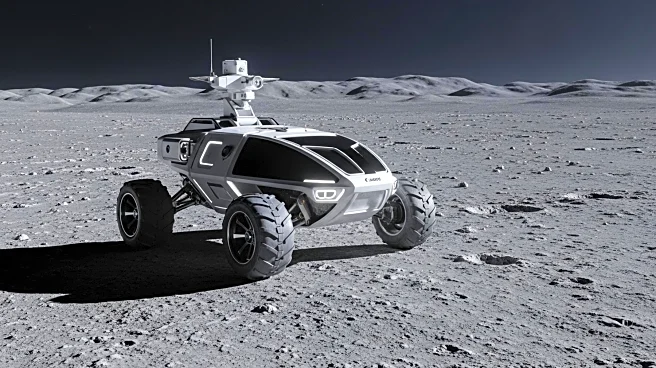What's Happening?
Blue Origin has won a $190 million contract to transport NASA's VIPER lunar rover to the Moon. The VIPER mission, initially canceled due to cost and schedule overruns, will now proceed under the Trump administration's focus on deep space exploration. The rover will be delivered by Blue Origin's MK1 lander to the lunar south pole, where it will search for ice over a 100-day period. VIPER is equipped with advanced instruments, including a neutron spectrometer, a drill developed by Honeybee Robotics, and a near-infrared volatiles spectrometer system. These tools will help determine the presence of water and hydrogen in the lunar regolith, potentially aiding in the creation of rocket fuel.
Why It's Important?
The revival of the VIPER mission underscores the Trump administration's commitment to lunar exploration, prioritizing deep space missions over Earth sciences. This contract with Blue Origin highlights the growing role of private companies in supporting NASA's objectives. The mission's success could pave the way for future lunar resource utilization, contributing to sustainable space exploration. The findings from VIPER could have significant implications for the development of technologies to extract and utilize lunar resources, potentially reducing the cost of future missions to the Moon and beyond.
What's Next?
Blue Origin's MK1 lander is expected to deliver VIPER to the Moon by late 2027. The rover's findings will be transmitted back to NASA, informing future lunar exploration strategies. The success of this mission could influence NASA's approach to resource utilization on the Moon, potentially leading to more contracts for private companies like Blue Origin. Stakeholders, including NASA and the aerospace industry, will be watching closely to assess the mission's impact on lunar exploration and resource extraction technologies.









